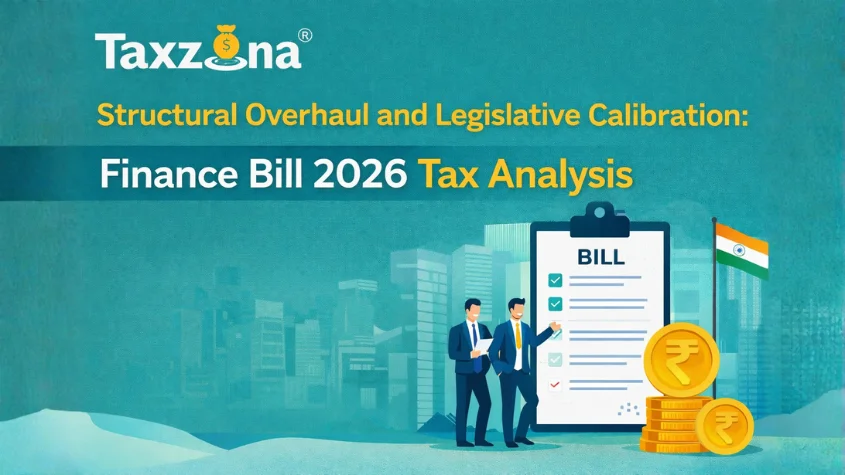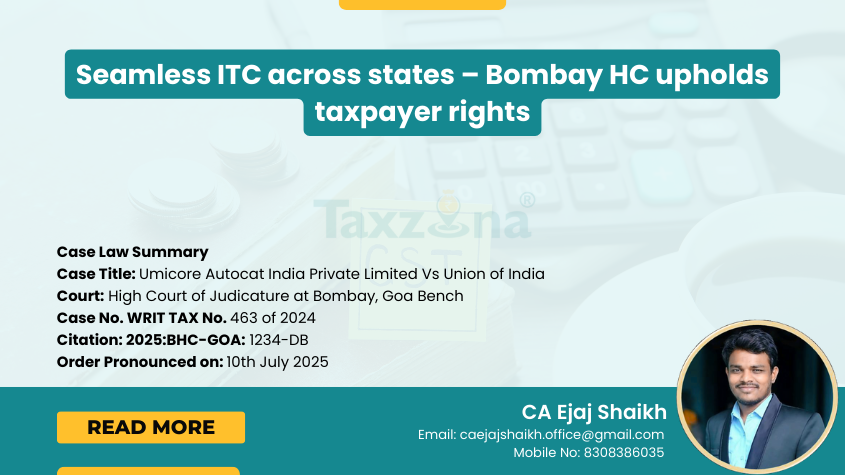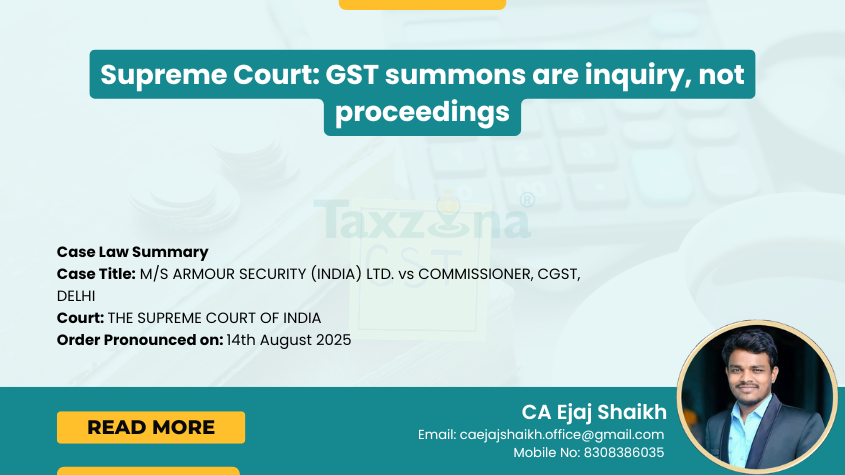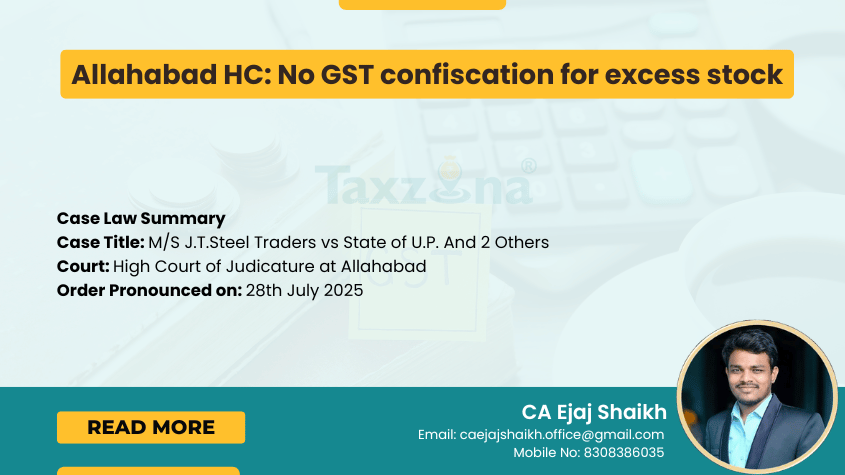
Bombay HC Allows Cross-State ITC Transfer on Amalgamation

1. Issue Involved
- The core issue in this case was whether Input Tax Credit (ITC) lying unutilized in the electronic credit ledger of a company registered in one state (Goa) can be legally transferred to another company registered in a different state (Maharashtra) upon amalgamation, under Section 18(3) of the Central Goods and Services Tax Act, 2017 (CGST Act), and Rule 41 of the CGST Rules, 2017.
- The GST portal restricted this transfer on the ground that both transferor and transferee must be in the same state, raising the legal question whether such a technical limitation is consistent with the statutory scheme.
Facts of the Case
- Umicore Autocat India Pvt. Ltd., the petitioner, is a company registered in Maharashtra. It was amalgamated with Umicore Anandeya India Pvt. Ltd., which was registered in Goa, through a scheme sanctioned by the NCLT Mumbai dated 26.05.2020.
- The amalgamation resulted in the dissolution of the transferor company (Umicore Anandeya) without winding up, effective from 01.04.2019, with all its liabilities and assets taken over by the transferee company (Umicore Autocat).
- At the time of amalgamation, the transferor company had unutilized ITC in its electronic credit ledger, comprising CGST, SGST, and IGST. When the transferee attempted to transfer the ITC using Form GST ITC-02 on the GST portal, the system rejected the application with the error “Transferee and Transferor should be of the same State/UT”.
- Representations to the GST authorities and officers yielded no solution. Consequently, the petitioner filed a writ petition seeking direction for the allowance of ITC transfer, arguing that the law imposes no such state-based restriction.


3. Observations of the Court
- The Hon’ble Bombay High Court at Goa, after reviewing the provisions of the CGST Act, IGST Act, and Goa GST Act, concluded that Section 18(3) of the CGST Act allows for the transfer of unutilized ITC in cases of amalgamation, without any territorial limitation. The Court observed that Rule 41 of the CGST Rules, which lays down the procedure for such transfer, also does not prescribe that both entities must be in the same state.
- The definition of “registered person” under Section 2(94) and registration norms under Section 25 do establish state-wise distinct persons, but nowhere does the law prohibit cross-state ITC transfer on merger or amalgamation. The Court held that technical errors or portal design flaws cannot defeat the substantive legal right of the taxpayer.
- The GST regime was designed to avoid tax cascading and promote seamless ITC flow. The court rejected the interpretation advanced by the authorities that transfer is impermissible across states, terming it inconsistent with the purpose and text of the Act. The Court also analysed and distinguished the Madras High Court decision in MMD Heavy Machinery Pvt. Ltd., holding that the case involved a closed unit and related to transitional credit under Cenvat Credit Rules, unlike the present amalgamation case under GST law.
4. Judgment of the Court
- The Court allowed the petition and directed the authorities to permit the transfer of unutilized CGST and IGST credit from the transferor company (Goa) to the transferee company (Maharashtra).
- The SGST credit was voluntarily waived by the petitioner to avoid any inter-state fiscal dispute.
- Given the portal’s technical constraints, the Court permitted the transfer by physical mode and instructed the GST Council and GSTN to address this issue by incorporating necessary system changes to align with the law.
- The Court affirmed that statutory entitlements must be given effect, and technical limitations cannot override substantive rights.
6. Key Learnings from the Judgment
- The Bombay High Court (Goa Bench) upheld the right of a transferee company to claim ITC lying in the electronic credit ledger of a transferor company, even when the companies are registered in different states, upon a valid amalgamation scheme.
- The Court categorically stated that neither Section 18(3) nor Rule 41 imposes any such territorial restriction, and the error message on the GSTN portal has no legal basis.
- This judgment provides much-needed clarity and relief to companies undergoing mergers or restructurings across states, ensuring that their tax credits remain protected and can be rightly availed.
7. Conclusion
The Kerala High Court’s ruling strengthens taxpayer rights and reinforces procedural safeguards in GST assessments. By holding that unsigned tax orders are invalid, the judgment ensures that tax authorities comply with the law and maintain transparency in assessment proceedings.
This decision sets an important precedent for future cases and clarifies that all tax orders must be properly authenticated before enforcement.
Recent Post

Structural Overhaul and Legislative Calibration: An In-Depth Analysis of the Finance Bill 2026

Supreme Court Clarifies GST Summons vs Proceedings

Allahabad HC Quashes GST Confiscation for Excess Stock
Have Any Question?
Our experts at Taxzona are here to help you with GST, Income Tax, and all your financial queries. Get reliable guidance tailored to your business and personal needs.

